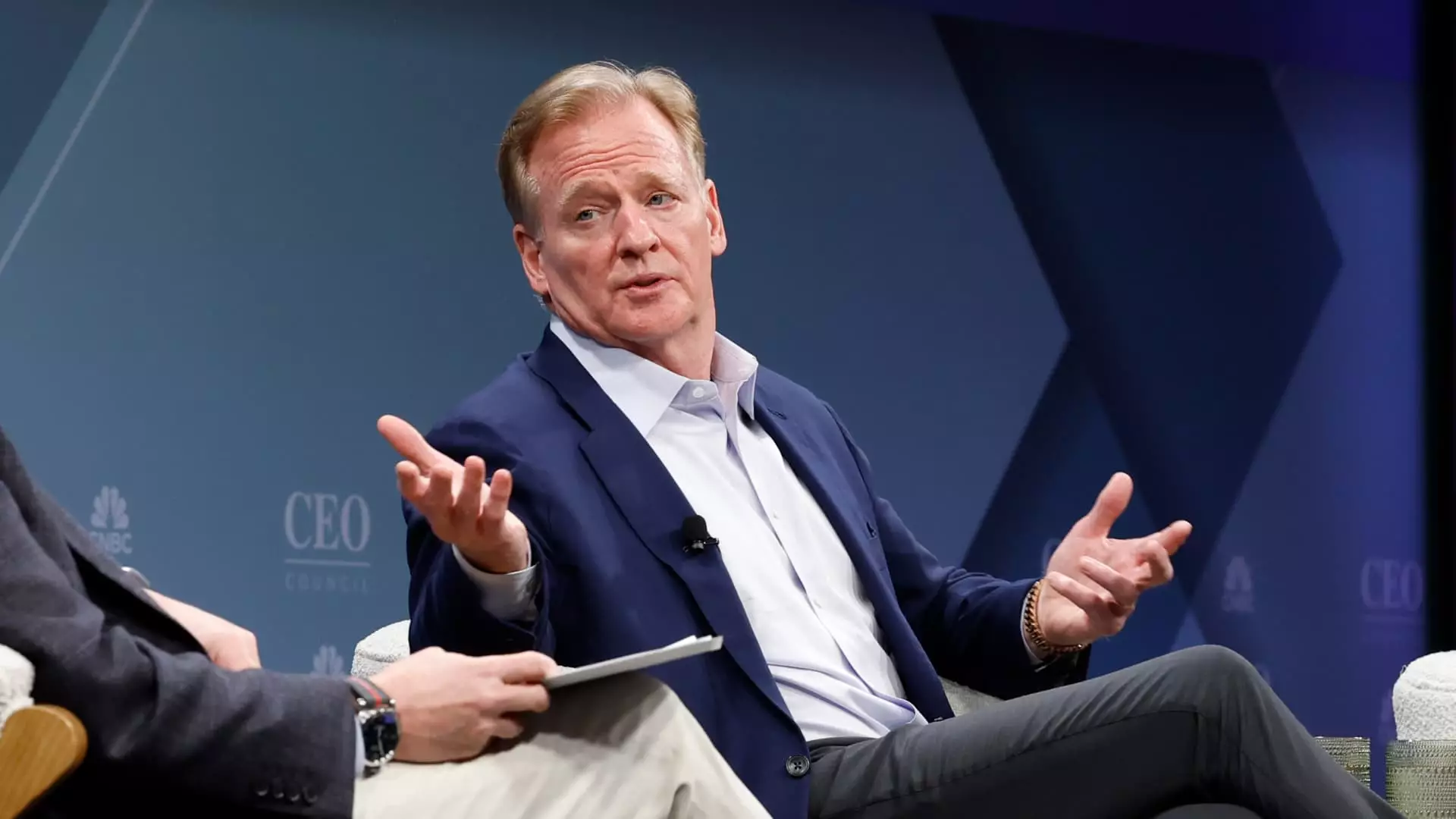In a move that signals a dramatic shift in the sports entertainment landscape, Roger Goodell, the NFL Commissioner, has proclaimed that the league is setting its sights on international competition like never before. With a potential 16 games scheduled abroad within the next five years, the NFL’s strategy to extend its influence beyond the continental United States is not just ambitious; it’s revolutionary. This paradigm shift is indicative of professional football’s vast untapped potential overseas, particularly in regions where the sport has a small yet fervent fan base. By aggressively pursuing an international agenda, the NFL is positioning itself not merely as an American pastime but as a global phenomenon.
Goodell’s insights echo a deep-seated understanding of modern consumer behavior. The NFL doesn’t simply have a substantial following in America—over 200 million fans by their estimate—but its international reach is what could turn the league into a multi-billion dollar global powerhouse. For instance, hosting games in countries like Brazil, Germany, and Spain is more than just a publicity stunt; it’s about cultivating a new generation of NFL fans who will, in turn, consume NFL products and content online. This international approach could not only broaden the NFL’s audience but also generate significant revenue streams that were once seen as territory reserved for traditional European sports leagues such as soccer.
Private Equity: The New Frontier
Furthermore, Goodell has hailed the league’s recent openness to private equity investment, permitting select firms to acquire up to 10% stakes in franchises. This move not only acknowledges the escalating valuations of NFL teams—averaging a staggering $6.49 billion per club—but also anticipates the model’s evolution in favor of greater liquidity and strategic partnerships. Goodell’s assertion that the NFL is close to adding more private equity firms into the fold is not merely a nod to newfound financial opportunities; it recognizes that the need for financial infusion is imperative to fuel growth as franchises chase after innovation and expansion.
The partnership dynamics within the NFL are shifting. As the league welcomes investment from private equity heavyweights like Blackstone and Carlyle Group, franchise owners could finally gain access to the capital required for renovation, digital transformation, and other operational improvements. These financial backers bring not only capital but expertise, advising teams on maximizing their potential—thus leading to even more engaging fan experiences, whether in-stadium or digitally.
Understanding Consumer Trends in Today’s Economy
Goodell’s confidence emerges even amid widespread economic uncertainty. As many industries wrestle with inflation, declining consumer sentiment, and various external pressures, the NFL stands apart with its resilient business model. The league’s ability to generate an unprecedented $23 billion in revenue in just one year is a testament to its stronghold on American sports culture. While companies across the nation scramble to meet shifting consumer tastes, the NFL decidedly capitalizes on a community built on loyalty and tradition, feeding the demand for sports content like a well-oiled machine. What is more intriguing is the NFL’s track record of successfully adapting to cultural shifts and leveraging technology to remain relevant—a quality often lost on its competitors.
This prosperity positions the NFL uniquely to weather economic turbulence. While industries may falter, the NFL continues to thrive, demonstrating a flourishing “brand capital” that shows no signs of waning. The fan engagement and corporate sponsorship figures suggest that audiences are craving authentic experiences, and the NFL seems committed to satisfying this demand, unabated by external market pressures.
The Road Ahead: A Mixed but Exciting Proposition
However, while the NFL’s ambitions are laudable, a certain caution must be exercised. The league’s transformation into a global entity could trigger unforeseen challenges—cultural missteps, logistical hurdles, and varying international regulations. Additionally, the prospect of saturating international markets may dilute brand authenticity, raising questions about whether the league can maintain the integrity that has endeared it to millions.
Ultimately, Roger Goodell’s vision for 16 international games is not merely a corporate strategy but a bold declaration of football’s increasingly geopolitical importance. The NFL is at a crossroads, daring to embrace risks that could redefine the future landscape of sports entertainment.

